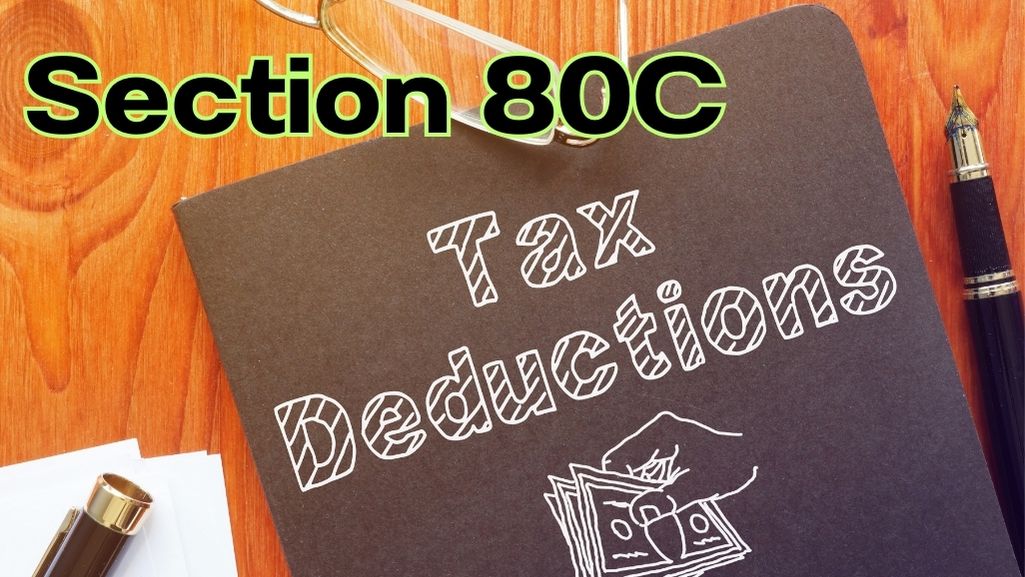Saving taxes is an important aspect of financial planning for individuals. Under 80C deductions, taxpayers can avail themselves of various investment options that offer deductions up to Rs. 1.5 lakh from their taxable income. By understanding these options, individuals can make informed decisions and maximize their savings while minimizing their tax liabilities.

Section 80C Deductions List
| Investment | Risk Factor | Lock-in Period | Average Interest/Return |
|---|---|---|---|
| Employee Provident Fund (EPF) | Low | Till retirement | 8.15% |
| Public Provident Fund (PPF) | Low | 15 years | 7.1% |
| National Savings Certificates (NSC) | Low | 5 years | 7.7% |
| Tax-Saving Fixed Deposits (FD) | Low | 5 years | 6.2% to 7.75% |
| Equity-Linked Savings Schemes (ELSS) | High | 3 years | 8% to 15% (Varies depending on the market) |
| Sukanya Samriddhi Yojana (SSY) | Low | Till the girl child reaches 21 years of age (partial withdrawal allowed when she reached 18 years) | 8% |
| Senior Citizen Savings Scheme | Low | 5 years | 8.2% |
80C Deductions: Investment Options
1. Employee Provident Fund (EPF):
- The EPF serves as a retirement savings scheme with limited withdrawal options.
- It allows you to save for retirement goals and enjoy the added benefit of tax deductions under Section 80C.
- Consistently, a fraction of your earnings, combined with an equal contribution from your employer, is systematically allocated to your EPF account, building a robust savings pool.
- The interest earned on EPF contributions is also tax-free.
2. Public Provident Fund (PPF):
- PPF is a safe investment option backed by the Government of India.
- The sovereign guarantee ensures the security of the invested capital and the interest earned.
- Contributions made to a PPF account are eligible for deductions under Section 80C.
- The PPF has a maturity period of 15 years, which can be extended in blocks of 5 years and the interest earned is tax-free.
- PPF is a popular choice for long-term savings, providing both tax advantages and a reliable investment avenue.
3. National Savings Certificates (NSC):
- NSC are fixed-income savings instruments offered by the Government of India, guaranteeing a steady income for investors.
- NSC investments qualify for tax deductions under Section 80C.
- The interest earned on NSC investments is taxable but deemed reinvested and eligible for further tax deductions under Section 80C.
- NSC offers risk-averse investors a suitable choice with its fixed rate of return and a maturity period of 5 years, providing stability and security.
4. Tax-Saving Fixed Deposits (FD):
- Tax-saving fixed deposits are special fixed deposit schemes offered by banks with a lock-in period of 5 years.
- Investments made in tax-saving FDs are eligible for deductions under Section 80C.
- However, the interest earned on these deposits is taxable.
- Tax-saving FDs provide a fixed rate of return and are a convenient option for individuals looking for assured returns and tax benefits.
5. Equity-Linked Savings Schemes (ELSS):
- ELSS is a tax-saving mutual fund scheme that offers the potential for capital appreciation along with tax benefits.
- Investments made in ELSS funds are eligible for deductions under Section 80C.
- ELSS has a lock-in period of 3 years and predominantly invests in equities, providing an opportunity to participate in the growth potential of the stock market.
- ELSS is suitable for individuals with higher risk tolerance and a long-term investment horizon.
6. Sukanya Samriddhi Yojana (SSY):
- Sukanya Samriddhi Yojana is a government-backed savings scheme specifically designed for the welfare of the girl child.
- Contributions made towards SSY accounts are eligible for tax deductions under Section 80C.
- The scheme offers an attractive interest rate and has a tenure of 21 years or until the girl child reaches the age of 18, whichever is earlier.
- SSY helps parents build a corpus for their daughter’s education, marriage, or other future expenses while enjoying tax benefits.
7. Senior Citizen Savings Scheme (SCSS):
- The SCSS is a popular investment option for senior citizens that qualify for tax benefits under Section 80C of the Income Tax Act.
- It offers an attractive interest rate and provides financial security for individuals in their retirement years.
- With a lock-in period of 5 years, the scheme ensures stable returns and allows senior citizens to earn a regular income from their investments.
- The SCSS is considered a low-risk investment avenue, making it an appealing choice for individuals looking for a secure and tax-efficient savings option.
Conclusion:
Section 80C presents a comprehensive range of tax-saving alternatives, enabling individuals to effectively decrease their taxable income and enhance their savings. The key is to choose the investment avenues that align with your financial goals, risk appetite, and investment horizon.
It is advisable to consider a diversified portfolio of tax-saving investments, combining options like EPF, PPF, NSC, tax-saving FDs, ELSS, and SSY, based on your specific requirements. Seeking guidance from a financial advisor or tax professional can be invaluable in developing a personalized tax-saving strategy that maximizes your savings and ensures adherence to tax laws.
By leveraging the benefits offered under Section 80C, individuals can secure their financial future while enjoying significant tax advantages.
